Living Waqf in Africa – Webinar Overview
Author: Kamal-Deen Abdallah Ibn Chambas
1.0 Introduction:
The “Living Waqaf in Africa” program, organized by AWQAF AFRICA, stands as a pivotal initiative aimed at shedding light on the significance of waqaf (endowment) practices in the African context. As communities across the continent navigate various challenges, the program sought to explore how waqaf can serve as a transformative force for positive change. This introduction provides an overview of the program, emphasizing its relevance and the crucial role it plays in addressing societal needs.
The overarching goal of the program was to deepen the understanding of waqaf in Africa and explore its potential to contribute to sustainable development, social welfare, and community empowerment. As we delve into the intricacies of the event, we will unravel key insights shared by esteemed speakers and delve into the implications of living waqaf in the African context.
Additionally, this introduction sets the stage by briefly introducing AWQAF AFRICA, the organizing entity, and highlighting the distinguished speakers who played a crucial role in shaping the discourse. Among them are Datuk Dr Mohd Ghazali Bin Md Noor, the Secretary-General of the World Zakat and Waqaf Forum, and Prof. Emeritus Dr. Barjoyai Bardai, a prominent researcher and practitioner at the Global Zakat and Waqaf Forum. The moderation of the event was skillfully handled by Kamal-Deen Abdallah Ibn Chambas, whose role as a moderator added depth and guidance to the discussions.
In essence, the introduction aims to capture the essence of the program, emphasizing the importance of living waqaf in Africa as a catalyst for positive change, community development, and empowerment. It sets the tone for an insightful exploration into the key aspects of the event and its broader implications for the African continent.
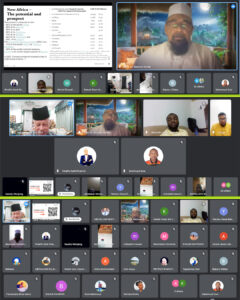
2.0 Overview of the Program:
The “Living Waqaf in Africa” program orchestrated by AWQAF AFRICA represents a crucial endeavor in fostering a deeper understanding of waqaf practices and their impact on the African continent. This program stands as a beacon, illuminating the path towards sustainable development, community well-being, and social transformation through the lens of Islamic endowments.
At its core, the program aimed to provide participants with a comprehensive overview of waqaf, exploring its roots, principles, and its evolving role in contemporary African society. By delving into the program’s key components, attendees were afforded the opportunity to gain insights into the historical context of waqaf, its adaptability to modern challenges, and the potential it holds for shaping a resilient and empowered future.
Throughout the duration of the program, participants engaged in enriching discussions, learning sessions, and presentations, all designed to demystify the concept of living waqaf. The overarching theme emphasized the dynamic nature of waqaf in addressing current societal needs, thereby positioning it as a catalyst for positive change across various spheres.
Key elements of the program included thought-provoking presentations by esteemed speakers, Datuk Dr Mohd Ghazali Bin Md Noor and Prof. Emeritus Dr. Barjoyai Bardai, who shared their wealth of knowledge and practical insights. The moderation by Kamal-Deen Abdallah Ibn Chambas further ensured a cohesive and impactful dialogue, guiding participants through the intricacies of waqaf in the African context.
As we navigate through this overview, we embark on a journey to unravel the layers of the program, exploring its objectives, key themes, and the collective efforts to amplify the understanding of living waqaf as a powerful instrument for positive societal change in Africa. The subsequent sections of this article will delve into specific aspects of the event, offering a detailed examination of the insights shared and their implications for the African continent.
3.0 Featured Speakers and Moderator:
The “Living Waqaf in Africa” program boasted a lineup of distinguished speakers and a seasoned moderator, each bringing a wealth of expertise and experience to the forefront of the discussions. The collective knowledge of these individuals added depth and perspective, enriching the program and contributing to a comprehensive exploration of waqaf in the African context.
Datuk Dr Mohd Ghazali Bin Md Noor:
As the Secretary-General of the World Zakat and Waqaf Forum, Datuk Dr Mohd Ghazali Bin Md Noor brought a global perspective to the program. His keynote address provided valuable insights into the evolving landscape of waqaf on an international scale. Participants benefited from his extensive experience, gaining a nuanced understanding of the challenges and opportunities inherent in the practice of living waqaf.
Prof. Emeritus Dr. Barjoyai Bardai:
A respected researcher and practitioner at the Global Zakat and Waqaf Forum, Prof. Emeritus Dr. Barjoyai Bardai added an academic and practical dimension to the discussions. His presentation delved into research findings, offering a glimpse into the application of waqaf principles in addressing contemporary issues. Participants had the opportunity to learn from his expertise, gaining valuable insights into the intersection of theory and practice in the realm of waqaf.
Kamal-Deen Abdallah Ibn Chambas (Moderator):
Steering the discussions with finesse, Kamal-Deen Abdallah Ibn Chambas assumed the pivotal role of the moderator. With a background reflecting a blend of academic knowledge and practical experience, Ibn Chambas skillfully guided the conversations, ensuring a balanced exploration of the topics at hand. His moderation style facilitated engaging discussions and enabled participants to delve deeper into the nuances of living waqaf in Africa.
Together, these featured speakers and the moderator formed a cohesive team, fostering an environment conducive to learning, collaboration, and the exchange of ideas. The synergy among these individuals contributed to the success of the program, making it a platform where theoretical insights met practical wisdom, and where the complexities of waqaf were navigated with clarity and purpose. In the subsequent sections, we will delve into the key highlights from their contributions, shedding light on the profound impact of their insights on the discourse surrounding living waqaf in Africa.
4.0 Insights from Datuk Dr Mohd Ghazali Bin Md Noor:
Datuk Dr Mohd Ghazali Bin Md Noor, the Secretary-General of the World Zakat and Waqaf Forum, shared valuable insights during the “Living Waqaf in Africa” program, offering a global perspective on waqaf practices with a focus on Africa.
Understanding Global Waqaf:
Dr Ghazali provided an overview of waqaf practices worldwide, helping participants see the bigger picture. His insights connected the international dots, demonstrating how lessons from different places could benefit waqaf in Africa.
Challenges and Opportunities:
Dr Ghazali discussed the hurdles and opportunities facing waqaf today. His practical insights equipped participants with a realistic view, suggesting ways to overcome challenges and leverage waqaf’s potential for positive impact.
Waqaf for Sustainable Development:
A key theme was waqaf’s role in sustainable development. Dr Ghazali explained how strategic waqaf initiatives could contribute to economic stability, social welfare, and community empowerment, emphasizing its transformative potential.
Adapting Waqaf in Africa:
Tailoring his insights to Africa, Dr Ghazali highlighted how waqaf can adapt to address specific challenges faced by African communities. Through practical examples, he showed how waqaf could be integrated locally for resilience and self-sufficiency.
Global Collaboration:
Dr Ghazali emphasized the importance of global collaboration. His insights encouraged participants to explore partnerships, share best practices, and engage in cross-border collaborations to strengthen waqaf efforts in Africa.
In summary, Dr Ghazali’s simple and practical insights offered a well-rounded view of waqaf, connecting global perspectives with a focus on Africa. His contributions empowered participants to see the potential of living waqaf in shaping a sustainable and prosperous future for the continent.
5.0 Prof. Emeritus Dr. Barjoyai Bardai’s Presentation:
During the “Living Waqaf in Africa” program, Prof. Emeritus Dr. Barjoyai Bardai, a distinguished researcher and practitioner at the Global Zakat and Waqaf Forum, provided a comprehensive presentation, delving into both research findings and practical applications of waqaf.
Research Findings:
Dr. Barjoyai Bardai shared valuable insights derived from his research endeavors. These findings likely included a deeper understanding of historical waqaf practices, trends in contemporary waqaf initiatives, and the impact of waqaf on communities. By presenting research-backed information, participants gained a nuanced perspective on the evolution and dynamics of waqaf in various contexts.
Practical Applications:
Dr. Barjoyai Bardai’s presentation went beyond theoretical insights, as he likely provided practical applications of waqaf principles. This could involve showcasing successful waqaf projects, illustrating how endowments have been effectively utilized in addressing real-world challenges, and offering tangible examples of how communities have benefited from living waqaf.
- Case Studies:
Dr. Barjoyai might have presented specific case studies to exemplify the practical applications of waqaf. These case studies could offer a closer look at successful waqaf initiatives, highlighting the positive impact on education, healthcare, poverty alleviation, and other community-focused endeavors.
- Strategies for Implementation:
In addition to case studies, Dr. Barjoyai might have outlined practical strategies for implementing waqaf initiatives. This could involve guidance on setting up and managing waqaf projects, ensuring sustainability, and overcoming common challenges faced in the practical execution of living waqaf.
Overall, Prof. Emeritus Dr. Barjoyai Bardai’s presentation would have bridged the gap between theoretical understanding and real-world application of waqaf principles. Participants likely gained actionable insights, enabling them to consider how to effectively integrate and adapt waqaf practices in their own communities, thus contributing to the program’s overarching goal of promoting sustainable development and community well-being in Africa.
6.0 Impact on the Community:
- Social and Economic Contributions:
The “Living Waqaf in Africa” program highlighted the profound impact of waqaf on communities, encompassing both social and economic dimensions.
Social Cohesion:
Living waqaf initiatives play a pivotal role in fostering social cohesion within communities. By supporting social welfare programs, healthcare facilities, and educational institutions, waqaf becomes a catalyst for unity, bringing people together for shared goals and aspirations.
Educational Opportunities:
One of the significant social contributions of waqaf lies in its support for education. Endowments dedicated to schools, scholarships, and educational infrastructure empower individuals with knowledge and skills, paving the way for a more educated and enlightened society.
Healthcare Accessibility:
Waqaf-driven healthcare projects contribute to improved community well-being by enhancing access to medical facilities and services. This not only addresses immediate health needs but also uplifts the overall quality of life within the community.
Poverty Alleviation:
Economic challenges often hinder social development. Waqaf initiatives targeted at poverty alleviation provide financial support, vocational training, and entrepreneurial opportunities, thereby contributing to the eradication of poverty and the enhancement of social welfare.
- Empowering Local Initiatives:
Community-Driven Development:
Living waqaf empowers communities by enabling them to take charge of their development. Local initiatives, supported by waqaf endowments, allow communities to identify and address their unique needs, fostering a sense of ownership and pride.
Sustainable Livelihoods:
Through the support of waqaf, local initiatives can focus on sustainable economic development. This might involve initiatives such as agricultural projects, small businesses, or vocational training programs, providing community members with the tools and resources needed for sustainable livelihoods.
Entrepreneurship and Innovation:
Waqaf endowments can serve as catalysts for entrepreneurship and innovation within communities. By providing funding and support for local businesses and start-ups, waqaf contributes to economic growth while nurturing a culture of creativity and enterprise.
Capacity Building:
Living waqaf initiatives emphasize capacity building at the local level. This involves equipping community members with skills, knowledge, and resources to become self-reliant. The empowerment derived from waqaf-supported initiatives strengthens the fabric of the community.
In summary, the impact of waqaf on communities goes beyond monetary contributions; it encompasses the social fabric and economic vitality of the community. By supporting local initiatives, waqaf becomes a force for positive change, uplifting communities and fostering sustainable development in Africa.
7.0 Q&A and Discussions:
The Q&A and discussions segment of the “Living Waqaf in Africa” program became a vibrant forum for participant engagement. Notably, Hawa from Ghana and Mohammad Basam stood out with their insightful questions.
Hawa’s Practical Inquiry:
Hawa, representing Ghana, asked pertinent questions on the real-world application of waqaf in the African context. Her focus likely centered on addressing specific challenges and opportunities in Ghana, contributing to a localized understanding of waqaf’s impact.
Mohammad Basam’s Scalability Focus:
Mohammad Basam’s thoughtful question likely explored the scalability of waqaf initiatives and the potential for cross-border collaborations. This inquiry opened discussions on how waqaf can transcend geographical boundaries, fostering unity in addressing regional challenges.
Interactive Dialogues:
The Q&A session facilitated a dynamic exchange of ideas among participants. The interactive nature of the discussions allowed for diverse perspectives, with participants sharing experiences, challenges, and success stories, creating a collaborative atmosphere.
Speakers’ Expert Responses:
The speakers, including Datuk Dr Mohd Ghazali Bin Md Noor and Prof. Emeritus Dr. Barjoyai Bardai, responded with expertise. Their answers provided valuable insights, addressing concerns raised by Hawa, Mohammad Basam, and others. This interactive exchange enhanced the overall learning experience.
In summary, the Q&A and discussions, featuring Hawa and Mohammad Basam, added depth to the program by incorporating diverse perspectives and fostering an environment of active participant involvement.
8.0 Conclusion by President of AWQAF AFRICA, H.E. Ibrahim Mugis:
In concluding the “Living Waqaf in Africa” program, President H.E. Ibrahim Mugis succinctly highlighted key insights from the discussions, expressing gratitude to speakers and participants. Emphasizing AWQAF AFRICA’s commitment to sustainable development, he encouraged future initiatives and called on participants to apply the learnings in their communities. The conclusion served as a unifying moment, inspiring collective action for the positive impact of living waqaf in Africa.

Awqaf Africa is a prominent organization dedicated to empowering communities across the African continent. Established to foster sustainable development and social welfare, Awqaf Africa focuses on harnessing the potential of endowments (awqaf) to drive positive change. Through strategic initiatives, partnerships, and impactful projects, Awqaf Africa endeavors to address socio-economic challenges and promote prosperity within African societies.
- Choose your favourite cause
- Register to our website !
- Donate the amount you like
- Stay tuned about cause

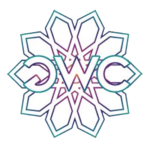
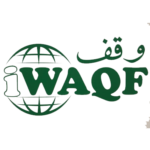
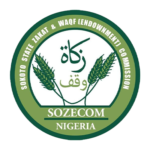
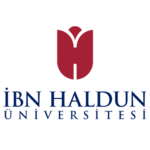
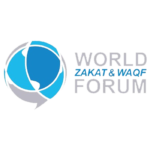
Leave a Reply